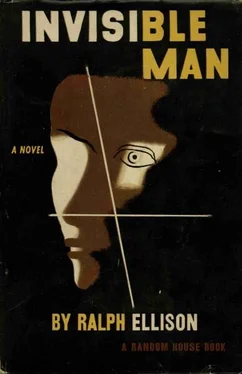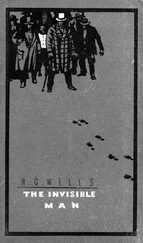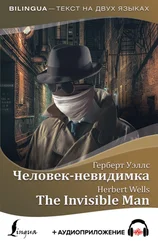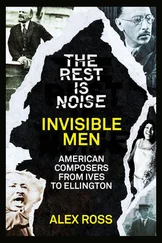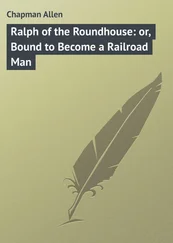Ralph Ellison - Invisible man
Здесь есть возможность читать онлайн «Ralph Ellison - Invisible man» весь текст электронной книги совершенно бесплатно (целиком полную версию без сокращений). В некоторых случаях можно слушать аудио, скачать через торрент в формате fb2 и присутствует краткое содержание. Год выпуска: 1995, ISBN: 1995, Издательство: Vintage Books, Жанр: Классическая проза, на английском языке. Описание произведения, (предисловие) а так же отзывы посетителей доступны на портале библиотеки ЛибКат.
- Название:Invisible man
- Автор:
- Издательство:Vintage Books
- Жанр:
- Год:1995
- ISBN:9780679732761
- Рейтинг книги:4 / 5. Голосов: 1
-
Избранное:Добавить в избранное
- Отзывы:
-
Ваша оценка:
- 80
- 1
- 2
- 3
- 4
- 5
Invisible man: краткое содержание, описание и аннотация
Предлагаем к чтению аннотацию, описание, краткое содержание или предисловие (зависит от того, что написал сам автор книги «Invisible man»). Если вы не нашли необходимую информацию о книге — напишите в комментариях, мы постараемся отыскать её.
The Waste Land,
Invisible man — читать онлайн бесплатно полную книгу (весь текст) целиком
Ниже представлен текст книги, разбитый по страницам. Система сохранения места последней прочитанной страницы, позволяет с удобством читать онлайн бесплатно книгу «Invisible man», без необходимости каждый раз заново искать на чём Вы остановились. Поставьте закладку, и сможете в любой момент перейти на страницу, на которой закончили чтение.
Интервал:
Закладка:
A train came. I followed them inside. There were many seats and the three sat together. I stood, holding onto the center pole, looking down the length of the car. On one side I saw a white nun in black telling her beads, and standing before the door across the aisle there was another dressed completely in white, the exact duplicate of the other except that she was black and her black feet bare. Neither of the nuns was looking at the other but at their crucifixes, and suddenly I laughed and a verse I'd heard long ago at the Golden Day paraphrased itself in my mind:
Bread and Wine,
Bread and Wine,
Your cross ain't nearly so
Heavy as mine ...
And the nuns rode on with lowered heads.
I looked at the boys. They sat as formally as they walked. From time to time one of them would look at his reflection in the window and give his hat brim a snap, the others watching him silently, communicating ironically with their eyes, then looking straight ahead. I staggered with the lunging of the train, feeling the overhead fans driving the hot air down upon me. What was I in relation to the boys, I wondered. Perhaps an accident, like Douglass. Perhaps each hundred years or so men like them, like me, appeared in society, drifting through; and yet by all historical logic we, I, should have disappeared around the first part of the nineteenth century, rationalized out of existence. Perhaps, like them, I was a throwback, a small distant meteorite that died several hundred years ago and now lived only by virtue of the light that speeds through space at too great a pace to realize that its source has become a piece of lead ... This was silly, such thoughts. I looked at the boys; one tapped another on the knee, and I saw him remove three rolled magazines from an inner pocket, passing two around and keeping one for himself. The others took theirs silently and began to read in complete absorption. One held his magazine high before his face and for an instant I saw a vivid scene: The shining rails, the fire hydrant, the fallen policeman, the diving birds and in the mid-ground, Clifton, crumpling. Then I saw the cover of a comic book and thought, Clifton would have known them better than I. He knew them all the time. I studied them closely until they left the train, their shoulders rocking, their heavy heel plates clicking remote, cryptic messages in the brief silence of the train's stop.
I came out of the subway, weak, moving through the heat as though I carried a heavy stone, the weight of a mountain on my shoulders. My new shoes hurt my feet. Now, moving through the crowds along 125th Street, I was painfully aware of other men dressed like the boys, and of girls in dark exotic-colored stockings, their costumes surreal variations of downtown styles. They'd been there all along, but somehow I'd missed them. I'd missed them even when my work had been most successful. They were outside the groove of history, and it was my job to get them in, all of them. I looked into the design of their faces, hardly a one that was unlike someone I'd known down South. Forgotten names sang through my head like forgotten scenes in dreams. I moved with the crowd, the sweat pouring off me, listening to the grinding roar of traffic, the growing sound of a record shop loudspeaker blaring a languid blues. I stopped. Was this all that would be recorded? Was this the only true history of the times, a mood blared by trumpets, trombones, saxophones and drums, a song with turgid, inadequate words? My mind flowed. It was as though in this short block I was forced to walk past everyone I'd ever known and no one would smile or call my name. No one fixed me in his eyes. I walked in feverish isolation. Near the corner now a couple of boys darted out of the Five and Ten with handfuls of candy bars, dropping them along the walks as they ran with a man right behind. They came toward me, pumping past, and I killed an impulse to trip the man and was confused all the more when an old woman standing further along threw out her leg and swung a heavy bag. The man went down, sliding across the walk as she shook her head in triumph. A pressure of guilt came over me. I stood on the edge of the walk watching the crowd threatening to attack the man until a policeman appeared and dispersed them. And although I knew no one man could do much about it, I felt responsible. All our work had been very little, no great change had been made. And it was all my fault. I'd been so fascinated by the motion that I'd forgotten to measure what it was bringing forth. I'd been asleep, dreaming.
Chapter 21
When I got back to the district a small group of youth members stopped their joking to welcome me, but I couldn't break the news. I went through to the office with only a nod, shutting the door upon their voices and sat staring out through the trees. The once fresh green of the trees was dark and drying now and somewhere down below a clothesline peddler clanged his bell and called. Then, as I fought against it, the scene came back -- not of the death, but of the dolls. Why had I lost my head and spat upon the doll, I wondered. What had Clifton felt when he saw me? He must have hated me behind his spiel, yet he'd ignored me. Yes, and been amused by my political stupidity. I had blown up and acted personally instead of denouncing the significance of the dolls, him, the obscene idea, and seizing the opportunity to educate the crowd. We lost no opportunity to educate, and I had failed. All I'd done was to make them laugh all the louder ... I had aided and abetted social backwardness ... The scene changed -- he lay in the sun and this time I saw a trail of smoke left by a sky-writing plane lingering in the sky, a large woman in a kelly-green dress stood near me saying, "Oh, Oh!" ...
I turned and faced the map, removing the doll from my pocket and tossing it upon the desk. My stomach surged. To die for such a thing! I picked it up with an unclean feeling, looked at the frilled paper. The joined cardboard feet hung down, pulling the paper legs in elastic folds, a construction of tissue, cardboard and glue. And yet I felt a hatred as for something alive. What had made it seem to dance? Its cardboard hands were doubled into fists, the fingers outlined in orange paint, and I noticed that it had two faces, one on either side of the disk of cardboard, and both grinning. Clifton's voice came to me as he spieled his directions for making it dance, and I held it by the feet and stretched its neck, seeing it crumple and slide forward. I tried again, turning its other face around. It gave a tired bounce, shook itself and fell in a heap.
"Go on, entertain me," I said, giving it a stretch. "You entertained the crowd." I turned it around. One face grinned as broadly as the other. It had grinned back at Clifton as it grinned forward at the crowd, and their entertainment had been his death. It had still grinned when I played the tool and spat upon it, and it was still grinning when Clifton ignored me. Then I saw a fine black thread and pulled it from the trilled paper. There was a loop tied in the end. I slipped it over my finger and stood stretching it taut. And this time it danced. Clifton had been making it dance all the time and the black thread had been invisible.
Why didn't you hit him? I asked myself; try to break his jaw? Why didn't you hurt him and save him? You might have started a fight and both of you would have been arrested with no shooting ... But why had he resisted the cop anyway? He'd been arrested before; he knew how far to go with a cop. What had the cop said to make him angry enough to lose his head? And suddenly it occurred to me that he might have been angry before he resisted, before he'd even seen the cop. My breath became short; I felt myself go weak. What if he believed I'd sold out? It was a sickening thought. I sat holding myself as though I might break. For a moment I weighed the idea, but it was too big for me. I could only accept responsibility for the living, not for the dead. My mind backed away from the notion. The incident was political. I looked at the doll, thinking, The political equivalent of such entertainment is death. But that's too broad a definition. Its economic meaning? That the lite of a man is worth the sale of a two-bit paper doll ... But that didn't kill the idea that my anger helped speed him on to death. And still my mind fought against it. For what had I to do with the crisis that had broken his integrity? What had I to do with his selling the dolls in the first place? And finally I had to give that up too. I was no detective, and, politically, individuals were without meaning. The shooting was all that was left of him now, Clifton had chosen to plunge out of history and, except for the picture it made in my mind's eye, only the plunge was recorded, and that was the only important thing.
Читать дальшеИнтервал:
Закладка:
Похожие книги на «Invisible man»
Представляем Вашему вниманию похожие книги на «Invisible man» списком для выбора. Мы отобрали схожую по названию и смыслу литературу в надежде предоставить читателям больше вариантов отыскать новые, интересные, ещё непрочитанные произведения.
Обсуждение, отзывы о книге «Invisible man» и просто собственные мнения читателей. Оставьте ваши комментарии, напишите, что Вы думаете о произведении, его смысле или главных героях. Укажите что конкретно понравилось, а что нет, и почему Вы так считаете.
